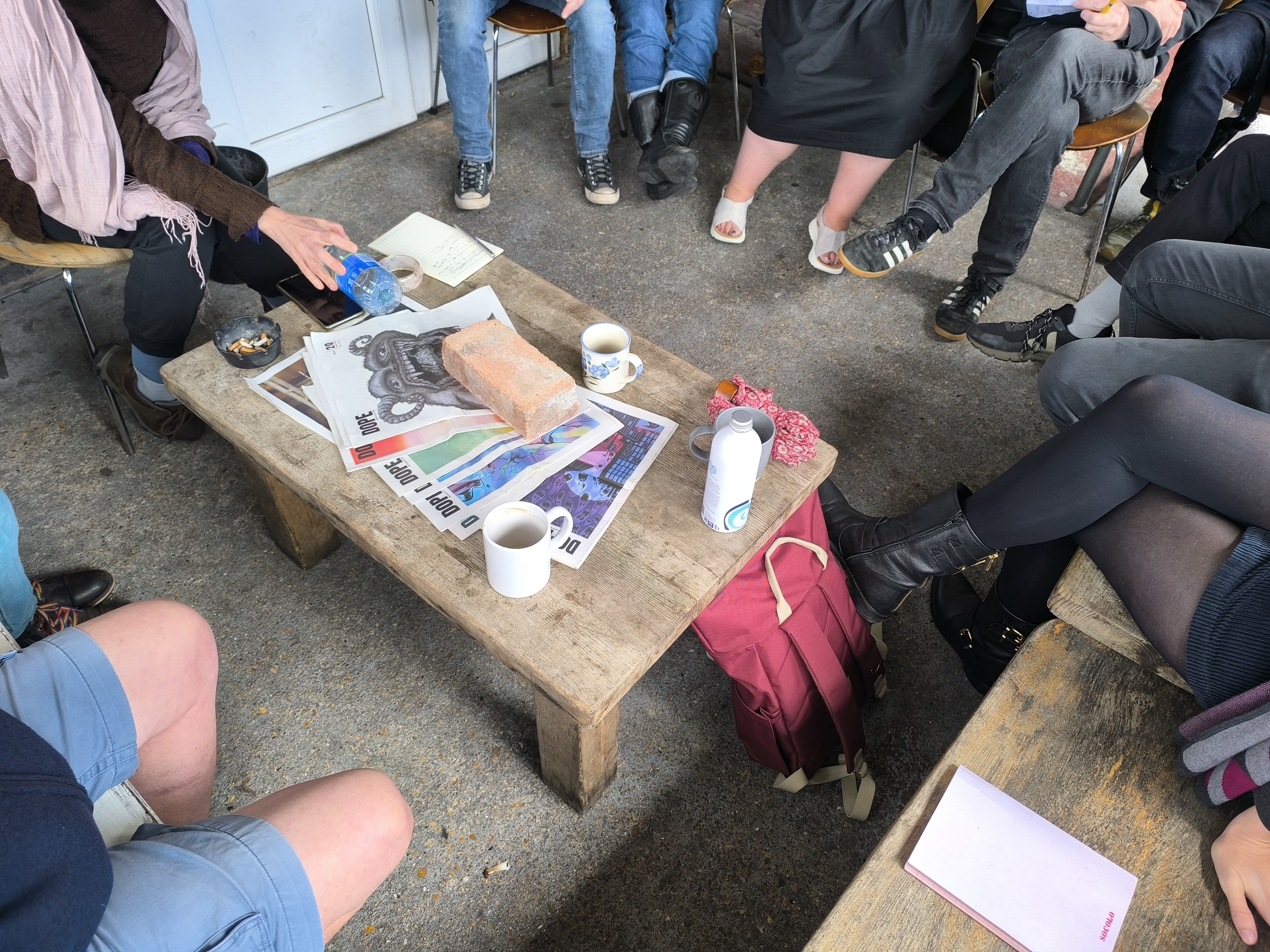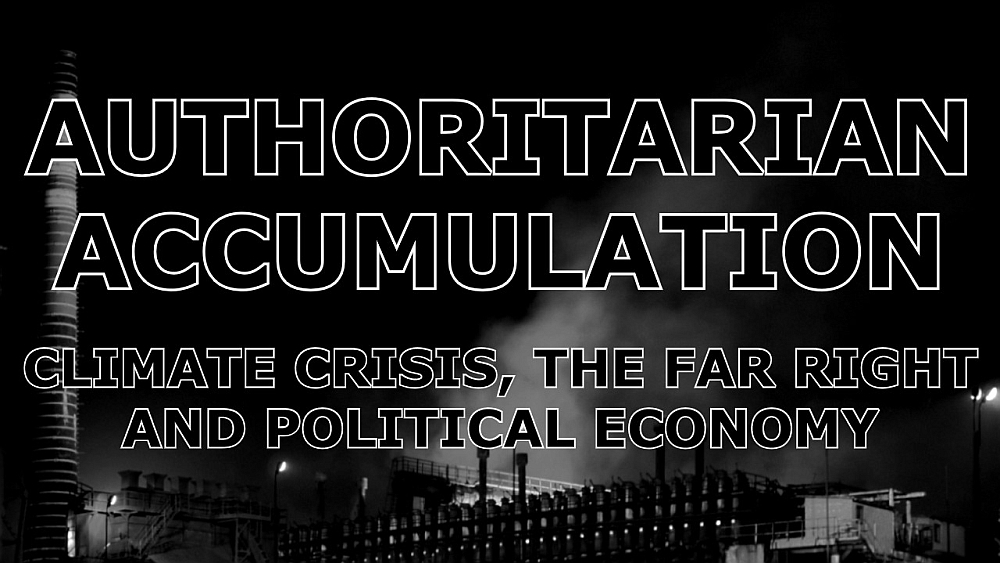This article is, for the most part, the first result of a weekend session about the political possibilities and desired forms of action and campaigning that Plan C Birmingham might want to be a part of in the city and in the ‘West Midlands Economic Engine’1. As such, it was not meant to be about action planning. Rather, it was an attempt to think through and evaluate what relevance the politics of the group have to ongoing struggles, as well as what kinds of activities could be used to promote the revolutionary politics that we want to see.
Any attempt to do something ambitious has to start with an assessment, however indefinite, of our circumstances and capacities for years to come. Much like other people at odds with capitalist social relations, we want to do all sorts of things: we want to see the world; we want to study; we want to earn enough money to live decently and be politically active; we want to set up radical co-ops; and we want a place to settle that we can comfortably call ‘home’. For some of us, Birmingham is either already such a place, or is shaping up to be. But how we relate to it in terms of time and space can be surprisingly different. This raises all sorts of questions about how we can intervene meaningfully – rather than in mere tokenistic fashion – in the antagonisms that permeate our city, as well as materially support the struggles that inevitably arise from this.
Starting a brand new campaign is not impossible. We are newly established as a local group of Plan C, but we have the ability to be very cohesive. But a campaign also needs to go beyond the single issue. On the ground, it is difficult to deal with people who can reply to any of our arguments with the claim that ‘there is no money’. Obviously, the presence or absence of money is a relative concept: there is and there isn’t money; it really depends on who the money is for. Because of this, we could say that people have swallowed the government’s rhetoric of austerity. But can they really be blamed? We know there is money, but less than we would like to think there is – especially for the things ‘we’ want.
If we wanted to seize the UK state to inaugurate an era of needs-based budgets, we would have to manage its capitalist economy. This would not be as easy as reading Marx and endlessly researching how to command the British economy. Indeed, this scenario is totally undesirable if we want to respond to the current situation in a critically supportive but revolutionary way. Many who either realise this or know it implicitly have made use of appeals on people’s sense of morality. But this too has proven to be equally difficult, since capitalism is blatantly beyond good and evil. After all, who would redirect public funds to save a library when mental health services are being cut? Morals are therefore objectively tied to class compromise – always already locked into a dialectic of inexorable mass impoverishment, all too often accompanied by a pernicious sense of guilt and a ‘tightening of the belt’.
In addition to tightening our belts, the immediate alternative to experiencing a loss of public services and mechanisms of fiscal redistribution is to harden our nerves and clench our teeth by making time to volunteer for ‘free’. Otherwise known as the ‘Big Society’, this thought process plays in the hands of the ruling Conservative Party. But here we do not want to remain stuck at the superficial level of political analysis. In a strange neoliberal way, the Big Society can be seen as a state-led effort to coerce the working class into autonomy. The crux of the matter therefore is not to shame the irresistible drive of people – overwhelmingly women – to take care of each other against all odds, but to politicise these activities so as to make their emergent capacities autonomous on our own terms. For example, imagine if all the food banks were run by communists! Instead of focusing on the futile recovery of the British economy to pre-crisis levels, we should therefore think more about what we truly want, and how we can begin to take it.
A tangible sign that times have changed is the decisive decline of declinist thinking in Britain. For over a century, British politics have been characterised by a common sense that Britain was ‘declining’, more specifically in industrial, economic and military terms. There is no doubt that some of this may have had something to do with the collapse of Britain’s colonial empire and the rise of the United States as an imperial power. But whilst this could be felt more strongly before the two World Wars, it is said that in the postwar period a feeling of decline took the distinctive form of a muddling between what was seen to be an inexorable fall in the country’s relative economic competitiveness and its standard of living. This interesting disjuncture has led more rigorous bourgeois commentators to stop taking decline for granted, and to start critiquing it as an ideology.
However, from an open Marxist perspective, we can say that when it is “critically conceived, ideology is not a worldview that attributes meanings to social things from this or that moral or political standpoint. Rather, ideology is an objective term that focuses the socially necessary appearance of society, one in which human social reproduction appears in the form of a movement of incomprehensible economic quantities” [Werner Bonefeld, Critical Theory and the Critique of Political Economy, 2014, p. 55]. A worldview is supposed to hold in every instance. In this sense, it is trans-historical. When British decline is similarly elevated to a level above history, actual social relations in Britain are made to look unchangeable – as if we live in a solid state.
Unsurprisingly, virtually all stage managers addressed decline during elections as well as in government. But only a few were exceptionally capable of masking declinist thinking as good or common sense. Amongst the most notable manipulators of declinist sensationalism were the PMs Harold Wilson of the Labour Party (1964-1970; 1974-1976) and Margaret Thatcher of the Conservative Party (1979-1990). In the 1960s, Harold Wilson famously argued that Britain desperately needed a technological and scientific revolution. His administration emerged from an intensifying conflict between the right and left wings of the Labour Party. Together with other notable centrist figures such as Tony Benn and Barbara Castle, Wilson pacified the unions with the promise of productivity booms – and therefore longer term economic competitiveness and secured employment – and satisfied the right with an electoral victory that attracted the increasing number of white collar worker-managers that saw the British establishment as an unnecessary barrier to progress.
Wilson’s governments will forever be known to British political, economic and social historians as an utter failure; as almost completely insignificant; and, especially in the eyes of right wing commentators, hopelessly dysfunctional socialist governments. The annals of postwar British political history are as erratic as capitalism itself. Yet there is a striking continuity between the declinist assumptions of Wilson’s Labour Party and the solutions proposed by both him and Margaret Thatcher. In fact, Wilson’s policies paved a road made of gold for the rise of the New Right. Chief amongst these was the idea that national economic management had just stopped working. If that sounds familiar, that’s because it is. The Coalition Government that we have just left behind us used a similar approach to public relations – harking that the sovereign British debt was too high, that public and welfare expenditure was too high, that the deficit was too high, etc.
Regardless of whether you want to be perceived to be a left wing or a right wing government, all it takes to dominate declinist thinking is to present the state as the harbinger of economic power – the gatekeeper of Britain’s return to being an economic powerhouse. We shouldn’t underestimate the power of this political promise. The state is always active in the management of the economy – regardless of whether it appears to be shrinking or getting bigger. But somewhere along the line this changed. Whilst the Tories rarely used the word ‘austerity’ themselves, all of a sudden the deficit and the debt disappeared from government rhetoric. And this is not just because these key economic indicators did not move in the direction that the Tories had wanted them to. Rather, what we have witnessed in the UK in these last couple of years has been a real-time decline of declinist thinking, and a failure of declinist approaches to mobilise people politically. The economic powerhouse is no longer forthcoming, and no amount of positive government thinking is going to change that. It is only in this sense that austerity can be said to be over, since it is simply not the hegemonic bulwark it may have been.
For these reasons, we believe that there is a political space for revolutionary politics in this country. Starting to explore this space by playing a supportive role in an existing campaign – perhaps even indefinitely – would be a good thing for us to do. Plan C Birmingham has a real chance to offer years of organisational experience and meaningfully assist in building infrastructure and institutions to support ongoing struggles. Naturally, whether any involvement would be indefinite or not depends on the particular engagement and our analysis of it; and this means paying close attention to the contradictions of contemporary capitalism, and their manifestation in social movements themselves.
Firstly, we must start by being honest about the severe lack of organic links outside of our ‘communities of origin’. In our present case, this is primarily a Russell Group university. But we also recognise that this is a problem in the UK Left as a whole. Secondly, we must be careful not to spread ourselves too thin. This can be done both in a relative and absolute sense. In the relative sense, we want to be sensitive to the recurrence of burnout and capacity crises. But in the absolute sense, there is a possibility to get involved in initiatives that are far less sporadic.
For example, anti-austerity campaigning is affected by a working time line set by capital and the state, and forces us to confront central government as a direct barrier from the very beginning. But something like an anti-work or an anti-racism campaigning presents us with issues that are ever present under capitalism; applying ourselves to such a contradiction could lead to learning to build capacity for struggle year on year. Bringing people into contact with revolutionary politics is a useful thing for the development of Plan C, because our politics would then grow alongside the development of people who are not in the organisation. There are also people and national resources that we could draw upon. In this sense, we are often bigger and stronger than we think. We could, and should eventually reach a point where we are capable of starting our own campaigns as a way of strengthening our organisation.
Thirdly, we should not be averse to criticism, but neither should we offer our help uncritically. Some criticism is indeed bullshit – boiling down to nothing but a critique of being organised or active (defeatism). Often this comes from afar – as criticism for the sake of criticism – but it can also come from within. Sometimes it is also in real bad faith, and is just not worth responding to. But at other times, criticism comes from an external position which requires us to respond with some inside knowledge to resituate the discussion and identify the real issue at hand. When we address criticism, we will say what we are about and what we want to achieve, as well as explain how we are working through the problems raised by critique. After all, we believe that taking criticism on board is a great way of sharpening and displaying the strengths of an organisation.
By far the best policy to follow is to be open about things, to try to act in good faith, and to be honest about the fact that sometimes you cannot reconcile ideas. More importantly, when asked – as we often are – ‘what does Plan C do?’, we have to remember that the vast majority of organising is not newsworthy. We should be honest about this. For example, on the question of taking public-facing positions, we recognise that there is a certain mode of positionality that is characteristic of the Left and which we have tried to move away from. That is, positions appear as the ends of analysis because they are inscribed in discussion from the very beginning. We are not against taking positions, but think there is more to revolutionary organisation than just this.
Ultimately, we ought to identify what the intent of the criticism is – whether it is undermining, or constructive. In either case, we ought not be afraid to consider it and return criticism if those who level it against us are wrong. The important thing is to not jump to conclusions. The problem is that faced with this challenge we are forced into a corner, whereby we end up reproducing the identity of Plan C as a fluid, slippery, disorganised network. Whilst we know that this is not the case, we do not want to create a procedure for everything: it is impossible to address this question with leftists who are not interested in our discussions of new organisational forms, of social reproduction, etc. This is a real material problem, because we can lose people this way. But just because an organisation does not publicise a position, it doesn’t mean that it has nothing to say. Positions – or what Plan C calls perspectives – should be the ends, and not the means, of analysis.
1) This summer, the government called the West Midlands the ‘economic powerhouse’. However, when the North of England – the ‘Northern Powerhouse’ – found out that the West Midlands had been given its name, the government changed the West Midlands’ name to the ‘economic engine’.





